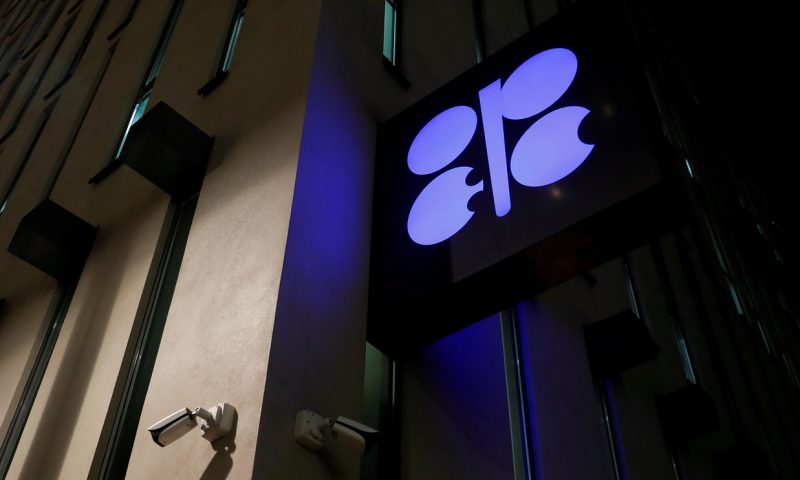Saudi Arabia reportedly pushing for alliance to ease curbs as planned in August
Oil futures ended lower on Monday as major oil-producing countries were said to consider easing output curbs as global crude demand has seen improvement as some economies have reopened from closures due to the coronavirus pandemic.
Still, “July could be a shaky month for oil,” as the “recent surge in coronavirus infection numbers in the U.S. and elsewhere have brought demand risk back into focus,” Stephen Innes, global chief market strategist at AxiCorp, wrote in emailed commentary Monday.
The possible “easing of OPEC+ production cuts next month after a one-month extension of the initial phase of the production cut plan, and a potential rebound in U.S. production could add pressure on the supply side of the equation,” he said.
West Texas Intermediate crude for August delivery CL00, -1.95% CL.1, -1.97% on the New York Mercantile Exchange fell 45 cents, or 1.1%, to settle at $40.10 a barrel. The global benchmark, September Brent crude BRN.1, -1.47% BRN00, -1.45%, lost 52 cents, or 1.2%, at $42.72 a barrel on ICE Futures Europe.
The Wall Street Journal on Saturday reported that an alliance of crude producers led by Saudi Arabia was pushing the Organization of the Petroleum Exporting Countries and its allies, collectively known as OPEC+, to ease oil output curbs as planned beginning in August due to signs that demand is returning to normal after cratering in the wake of coronavirus-related lockdowns.
The next monthly meetings for OPEC’s Joint Technical Committee, which provides a review of the oil market and makes recommendations to OPEC+, and the Joint Ministerial Monitoring Committee, which oversees compliance with output cuts, are scheduled for Tuesday and Wednesday, respectively.
OPEC and its allies, including Russia, agreed in April to cut global output by 9.7 million barrels a day in May and June after collapsing demand and a brief Saudi-Russian price war sent crude prices plunging. The cuts were then extended to the end of July. The Saudi proposal would see the alliance, known as OPEC+, relax its curbs by 2 million barrels a day to 7.7 million barrels beginning in August, the WSJ report said.
Analysts played down the overall implications of a move to ease curbs.
“If the group decides to ease cuts from the 1 August, this should not lead to a change in views on the market, with most assuming that OPEC+ would start easing cuts by this stage already,” said Warren Patterson, head of commodities strategy at ING, in a note. “However continuing deeper cuts would be more of a surprise.
But some analysts argued that the potential for oil to see renewed pressure, particularly as the number of coronavirus cases shows a renewed rise in the U.S. and elsewhere, could make some producers reluctant to ease curbs next month.
“OPEC+ could justify the designated increase in production as of now, but if the virus continues to surge globally over the next week, the demand forecast will change, and the oil market could swing heavily back into oversupply territory,” said Edward Moya, senior market analyst at Oanda, in a note.
Back on Nymex, prices for petroleum products also declined, with August gasoline RBQ20, -3.11% down 0.8% at $1.2734 a gallon and August heating oil HOQ20, -1.36% losing 1.4% to $1.2235 a gallon.
August natural gas NGQ20, -1.04% settled at $1.739 per million British thermal units, down 3.7%.

